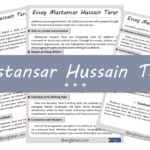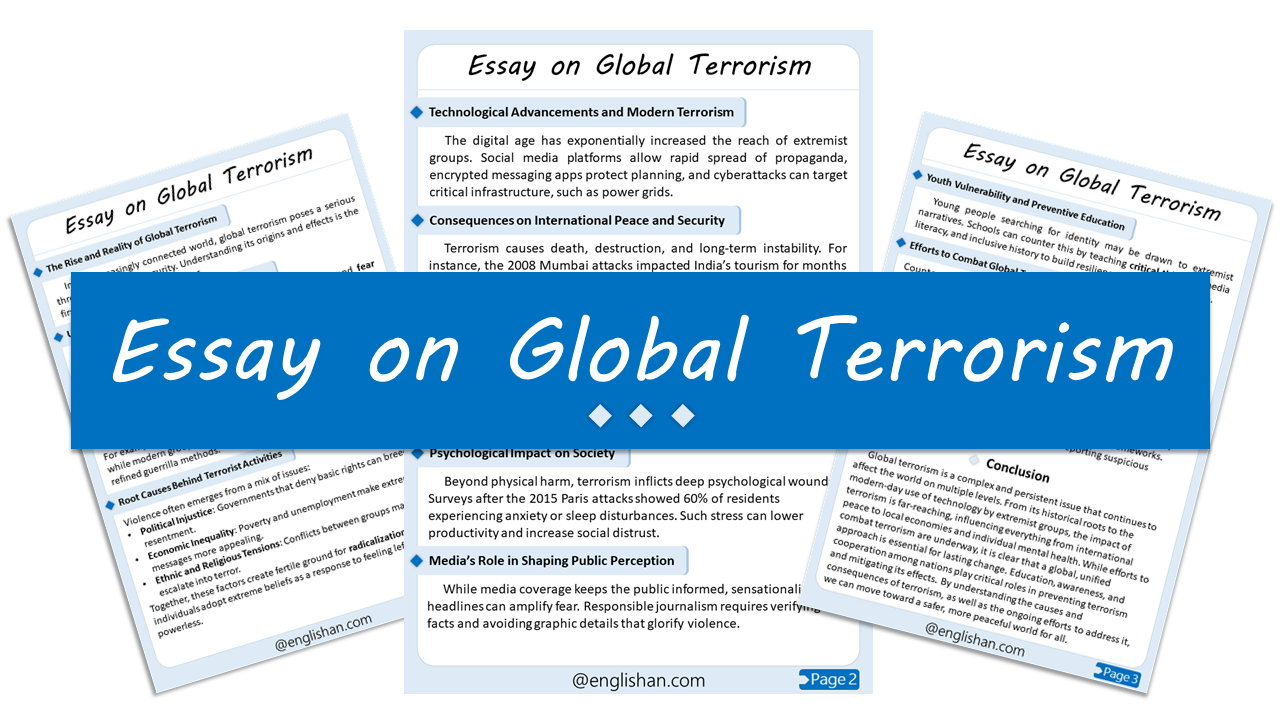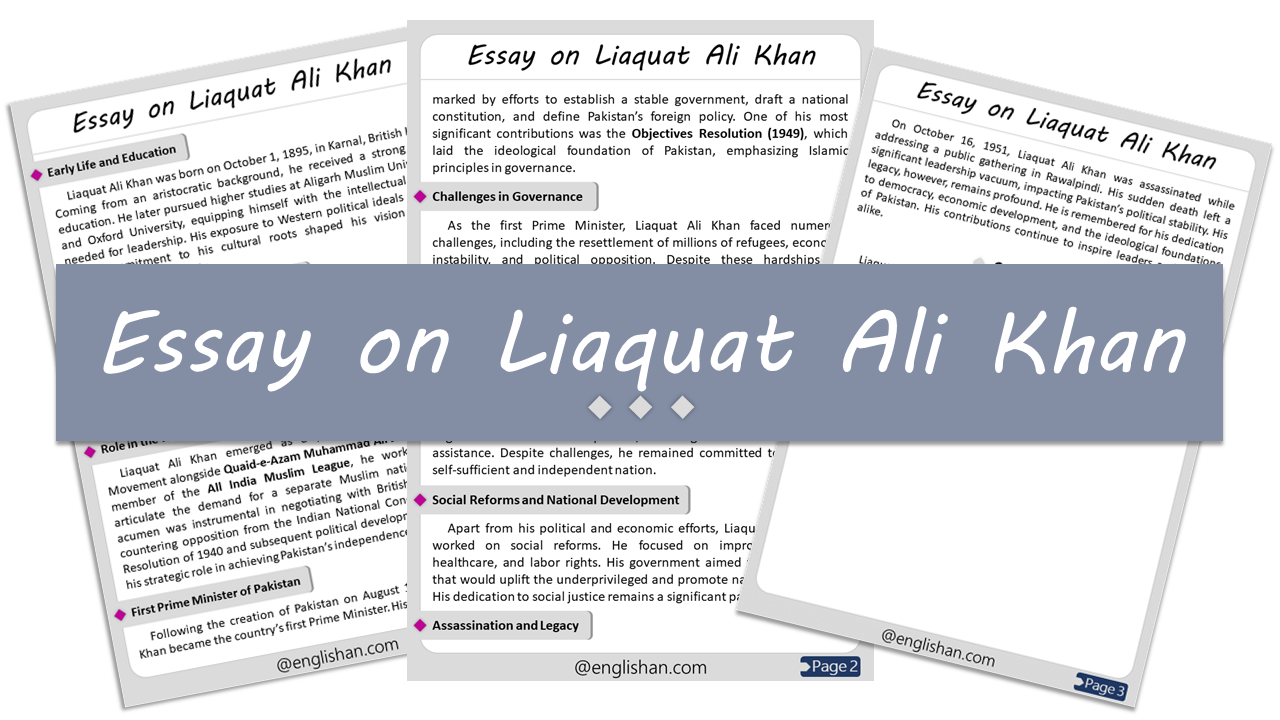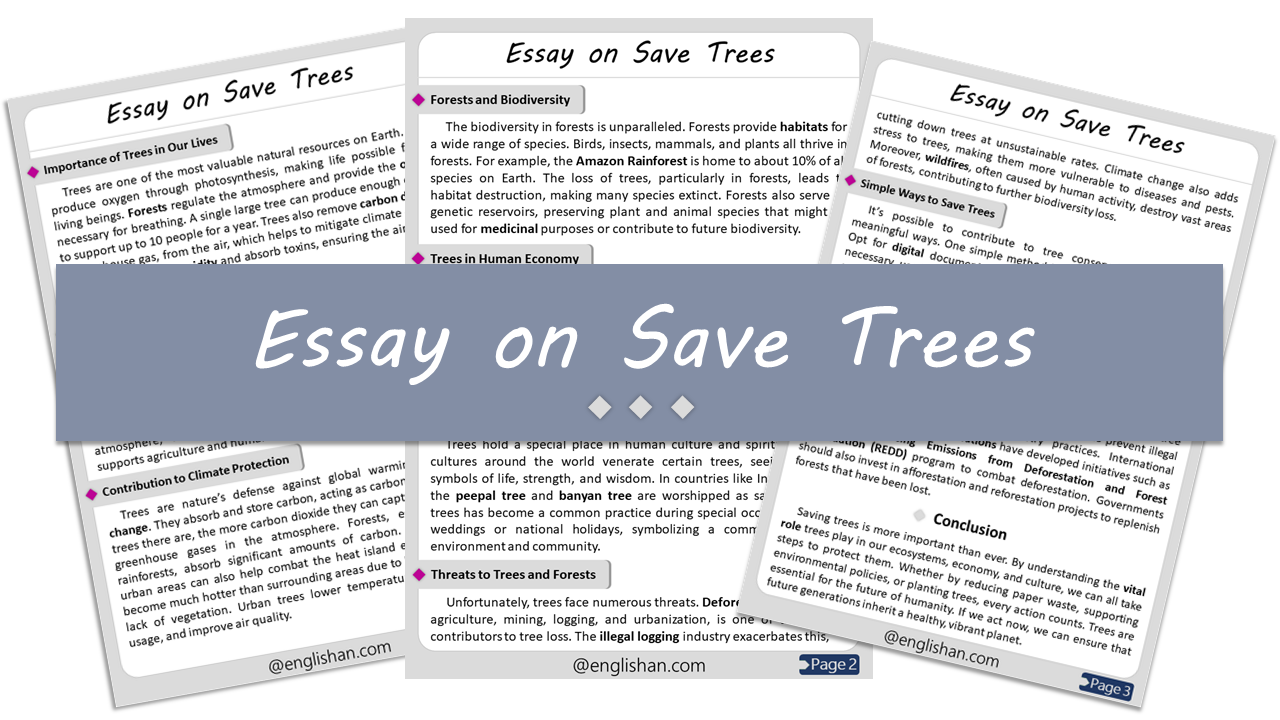When writing about Bano Qudsia, it’s important to understand how her stories and plays reflect human emotions and social life. This essay on Bano Qudsia explains her early life, famous works, contributions to literature, and lasting impact. It’s written in 250 words to help students with homework or exams. You can download this Bano Qudsia essay as a free PDF or image to study or print.
10 Lines Bano Qudsia Essay for Class 2 to Class 5
- Bano Qudsia was a famous Pakistani writer.
- She was born on November 28, 1928, in Firozpur, India.
- She moved to Pakistan after independence in 1947.
- Bano Qudsia wrote novels and plays.
- Her writing talks about human feelings and society.
- One of her famous books is Raja Gidh.
- She also worked for Pakistan Television (PTV).
- Bano Qudsia taught literature to many students.
- She won many awards for her work.
- She passed away in 2017 but is still loved by readers.
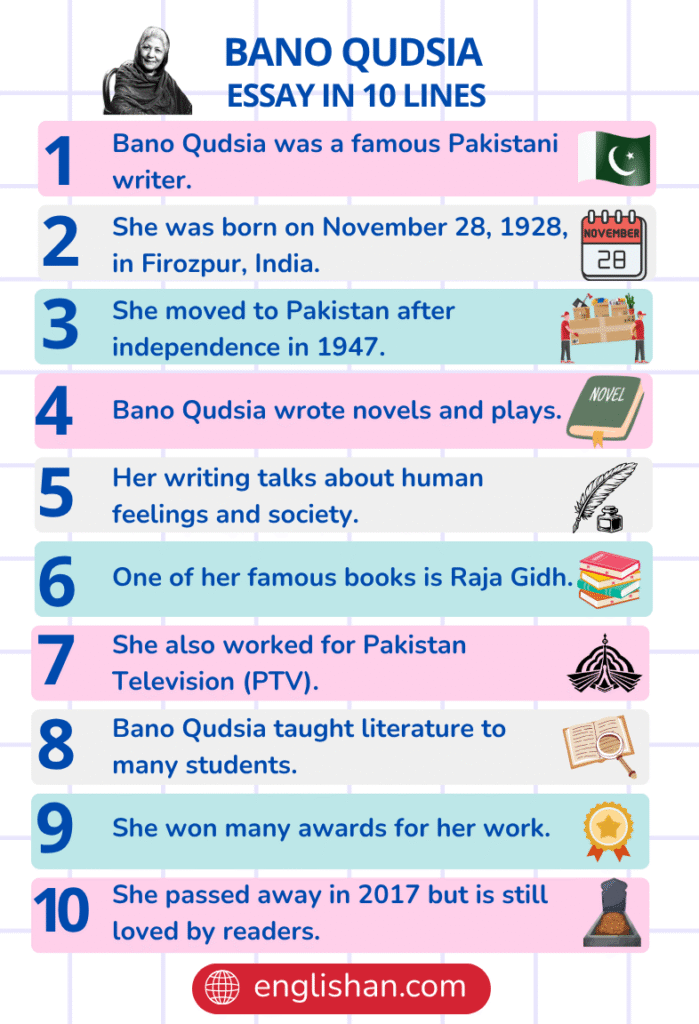
250 Words Essay on Bano Qudsia for Middle School
Bano Qudsia was a well-known writer from Pakistan who made a big impact on Urdu literature. She was born on November 28, 1928, in Firozpur, India. After the partition of India in 1947, she moved to Pakistan and started her career as a writer and teacher.
Bano Qudsia’s writing is famous for its deep understanding of human nature and social issues. She wrote many novels, short stories, and plays that are still loved today. Her most famous novel, Raja Gidh, explores themes like love, morality, and the human mind. This novel is considered a masterpiece in Urdu literature.
Apart from writing, Bano Qudsia also taught Urdu literature at Punjab University. She inspired many students with her knowledge and passion. She also worked with Pakistan Television (PTV), writing scripts for dramas that were very popular.
Bano Qudsia received many awards for her contributions to literature, including the Sitara-i-Imtiaz and the President’s Pride of Performance. Her work reflects the values of kindness, honesty, and human dignity.
In conclusion, Bano Qudsia was not only a talented writer but also a teacher and thinker who influenced many people. Her books continue to teach us about life, emotions, and society. She remains an important figure in Pakistani literature.
500 Words Bano Qudsia Essay for Upper Primary and Lower Secondary
Early Life and Education
Bano Qudsia was born on November 28, 1928, in Firozpur, British India. After the partition in 1947, she migrated to Pakistan, where she pursued higher education. She earned a master’s degree in Urdu literature from Government College Lahore, where she met her future husband, Ashfaq Ahmed, a renowned literary figure. Their partnership significantly influenced Urdu literature, with both making remarkable contributions to the field.
Literary Contributions
Bano Qudsia’s writing is deeply philosophical, often addressing themes of spirituality, human psychology, and social values. Her most famous novel, “Raja Gidh”, is a masterpiece exploring moral and ethical dilemmas. The novel delves into the consequences of forbidden love and the impact of an individual’s actions on society.
Besides novels, she also wrote numerous short stories, plays, and essays, with her works reflecting her deep understanding of human nature. Her writing style is characterized by a profound emotional depth and an ability to present complex ideas in simple, engaging language.
Revolutionizing Urdu Literature with Sufi Thought
Bano Qudsia is credited with bringing a unique perspective to Urdu fiction. She skillfully combined Sufi thought with contemporary issues, making her works relevant to both traditional and modern readers. Her thought-provoking plays for television and radio solidified her position as one of Pakistan’s foremost literary figures.
Her ability to connect with readers emotionally and intellectually earned her immense respect. Through her storytelling, she challenged societal norms and encouraged introspection, making her literature a guiding light for generations of readers and writers.
Awards and Recognition
Bano Qudsia received numerous accolades for her contributions to Urdu literature. Some of her most notable awards include:
- Sitara-e-Imtiaz: One of Pakistan’s highest civilian honors.
- Kamal-e-Fun Award: Recognizing her lifetime achievements in literature.
- Hilal-e-Imtiaz: Another prestigious award acknowledging her literary excellence.
Her legacy continues to inspire writers and scholars, ensuring that her work remains relevant for years to come.
Bano Qudsia’s Life: A Fusion of Love and Spirituality
Bano Qudsia’s personal life was deeply intertwined with her literary pursuits. She shared a profound bond with her husband, Ashfaq Ahmed, and together they explored themes of spirituality, love, and human nature. Her philosophical outlook was heavily influenced by Sufi teachings, which she seamlessly incorporated into her writings.
Notable Works
Apart from Raja Gidh, Bano Qudsia penned several influential books, including:
- Aatish-e-Zer-e-Paa: A collection of thought-provoking essays.
- Haasil Ghaat: A novel reflecting her deep philosophical insights.
- Tamasil: A powerful play that gained widespread acclaim.
Her works continue to be studied and appreciated by literature enthusiasts worldwide.
Contributions to Pakistani Society
Beyond literature, Bano Qudsia was a mentor and intellectual guide to many young writers. She frequently spoke at literary conferences, offering insights into Urdu literature and social development. Her writings encouraged self-reflection and urged individuals to embrace morality and ethics in their daily lives.
Lasting Legacy
Bano Qudsia’s influence extends far beyond her literary works. Her thought-provoking storytelling, focus on spiritual wisdom, and deep cultural awareness make her a timeless figure in Urdu literature. She remains an inspiration for aspiring writers and continues to shape the literary landscape of Pakistan.
Conclusion of Bano Qudsia Essay
Bano Qudsia was a visionary writer whose literature continues to captivate readers. Her thought-provoking themes, strong narratives, and deep philosophical insights make her a literary legend. By blending tradition with modernity, she created a lasting impact on Urdu literature.
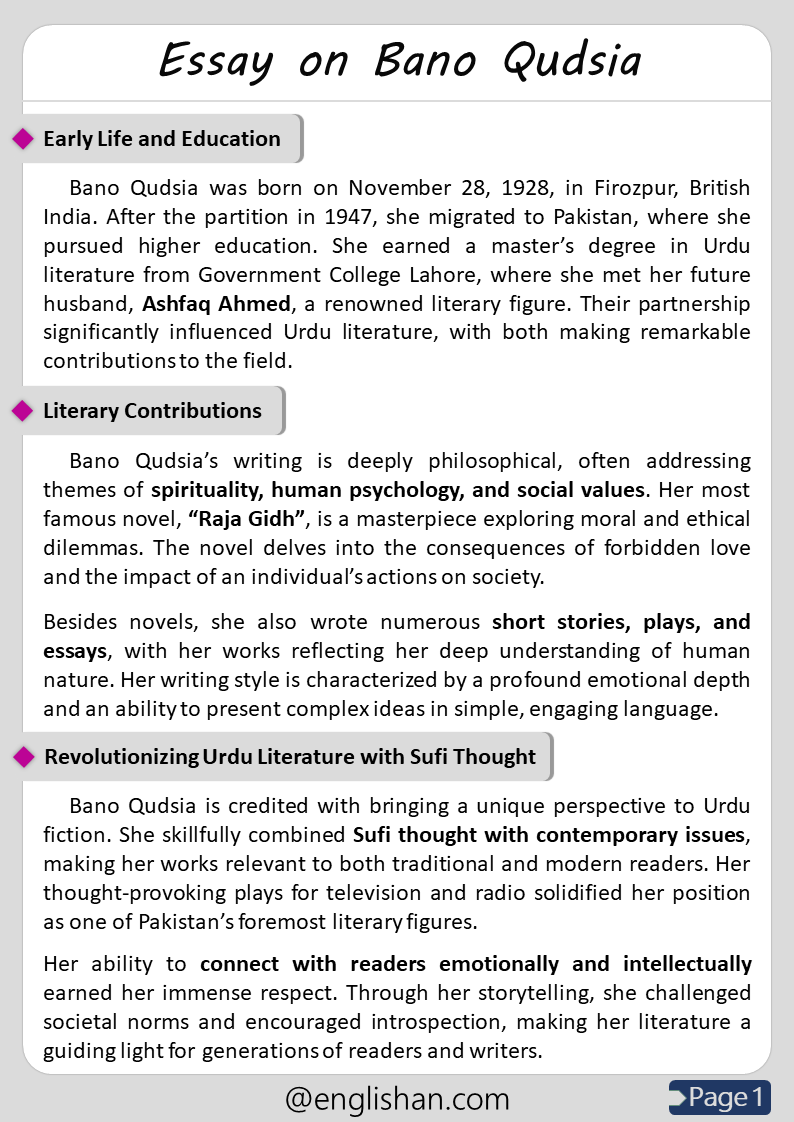
Difficult Words Used in 500 Bano Qudsia Essay
| Word | Meaning |
|---|---|
| Philosophical | Related to deep thinking and fundamental truths |
| Dilemmas | Difficult choices between conflicting options |
| Introspection | Examining one’s thoughts and feelings |
| Legacy | Something left behind for future generations |
| Captivate | To attract and hold interest strongly |
| Ethics | Moral principles that guide behavior |
| Morality | The distinction between right and wrong |
| Influence | The capacity to have an effect on others |
Bano Qudsia Essay PDF
You May Also Like


